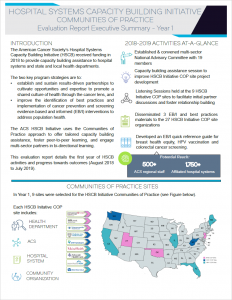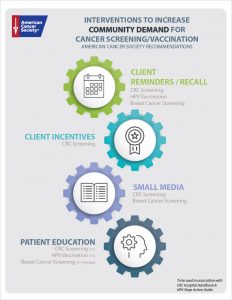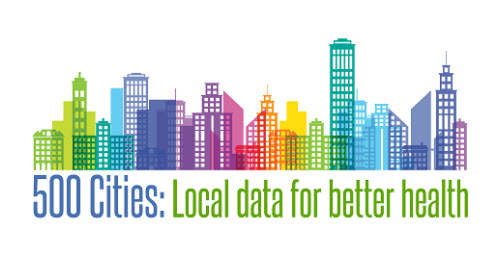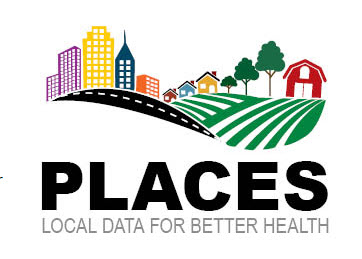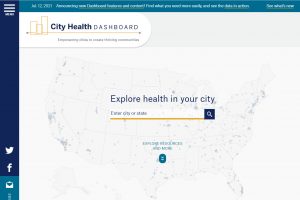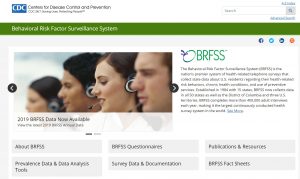This page contains links to useful resources and websites that can help you to improve cancer screening and prevention.
Executive Summary Evaluations
Evidence-Based and Informed Intervention Resources
Evidence-Based and Informed Interventions (Combined PDF)
This guide combines the content of three guides that summarize the Community Guide and American Cancer Society recommendations for interventions to increase community demand for cancer screening and vaccination services related to the focus areas of breast cancer screenning, colorectal cancer screening, and HPV vaccination. It covers interventions for increasing community demand, increasing provider delivery, and increasing community access to services by reducing patient costs and barriers.
Implementation Science At a Glance
This workbook shows how the use of implementation science can support the effective adoption of evidence-based interventions. It provides summaries of key theories, methods, models, and case studies of how practitioners are successfully applying implementation science in their cancer control programs.
Evidence-Based Cancer Control Programs
This database lists cancer control programs and related evidence-based implementation materials. The website provides a review of over 200 programs available for use in a community or clinical setting. The database contains program information on health topics such as tobacco control, HPV vaccination, and cancer screening; on delivery settings including community organizations, schools, and clinical settings; and target populations that have different demographics.
County Health Rankings and Roadmaps
How healthy is your community? Many factors impact how long and how well we live. Data on this site show how these factors shape community conditions while highlighting the stark differences in health that stem from injustices and barriers to opportunity. Use our resources to take action toward better health for all.
Data Resources
The following data resources can help you to assess the cancer burden at the local and state levels. Using the data resources and vaccine and screening tracking systems, you can:
- Define the starting point and measurable goals for your community
- Establish community baseline values and identify the differences by specific characteristics (e.g. race/ethnicity, age, etc.)
- Monitor changes in your community over time
The 500 Cities Project (Now the PLACES Project)
The 500 Cities Project was replaced by the PLACES Project in December 2020. 500 Cities was a collaboration between CDC, the Robert Wood Johnson Foundation, and the CDC Foundation. It provided city- and census tract-level small area estimates for chronic disease risk factors, health outcomes, and clinical preventive services use for the largest 500 cities in the United States.
The CDC PLACES Project
The CDC PLACES Project is an expansion of the original 500 Cities Project that began in 2015. The original project was launched by the Centers for Disease Control and Prevention in partnership with the Robert Wood Johnson Foundation and CDC Foundation.
Behavioral Risk Factor Surveillance System
The Behavioral Risk Factor Surveillance System (BRFSS) is the nation’s premier system of health-related telephone surveys that collect state data about U.S. residents regarding their health-related risk behaviors, chronic health conditions, and use of preventive services.
Vaccine Tracking System
The Vaccine Tracking System (VTrckS) is a secure, web-based information technology system that integrates the entire publicly-funded vaccine supply chain from purchasing and ordering through distribution to participating state, local, and territorial health departments and health care providers.

